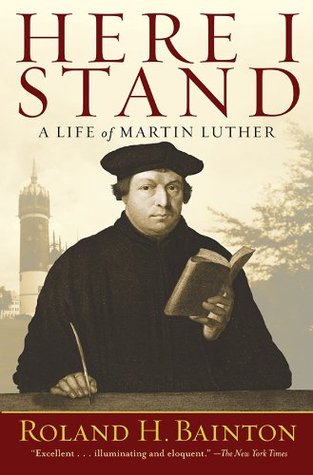More on this book
Kindle Notes & Highlights
There is just one respect in which Luther appears to have been different from other youths of his time, namely, in that he was extraordinarily sensitive and subject to recurrent periods of exaltation and depression of spirit.
The meaning of Luther’s entry into the monastery is simply this, that the great revolt against the medieval Church arose from a desperate attempt to follow the way by her prescribed.
There is, according to Luther, something much more drastically wrong with man than any particular list of offenses which can be enumerated, confessed, and forgiven. The very nature of man is corrupt. The penitential system fails because it is directed to particular lapses. Luther had come to perceive that the entire man is in need of forgiveness.
He had arrived at a valid impasse. Sins to be forgiven must be confessed. To be confessed they must be recognized and remembered. If they are not recognized and remembered, they cannot be confessed. If they are not confessed, they cannot be forgiven.
God is so absolute that nothing can be contingent. Man’s fate has been decreed since the foundation of the world, and in large measure also man’s character is already fixed. This view commended itself all the more to Luther because it had been espoused by the founder of his order, St. Augustine, who, following Paul, held that God has already chosen some vessels for honor and some for dishonor, regardless of their deserts. The lost are lost, do what they can; the saved are saved, do what they may. To those who think they are saved this is an unspeakable comfort, but to those who think they are
...more
It is not that the Son by his sacrifice has placated the irate Father; it is not primarily that the Master by his self-abandoning goodness has made up for our deficiency. It is that in some inexplicable way, in the utter desolation of the forsaken Christ, God was able to reconcile the world to himself.
The center about which all the petals clustered was the affirmation of the forgiveness of sins through the utterly unmerited grace of God made possible by the cross of Christ, which reconciled wrath and mercy, routed the hosts of hell, triumphed over sin and death, and by the resurrection manifested that power which enables man to die to sin and rise to newness of life.
There were three main points: an objection to the avowed object of the expenditure, a denial of the powers of the pope over purgatory, and a consideration of the welfare of the sinner.
Whatever would foster the understanding, dissemination, and practice of God’s Word should be encouraged, and whatever impeded must be opposed. This is why it is futile to inquire whether Luther was a democrat, aristocrat, autocrat, or anything else. Religion was for him the chief end of man, and all else peripheral.
Here again we meet with an Augustinian theme, save that for Augustine history is an illustration of man’s lust for domination and of the justice of God in abasing the arrogant. But Luther wonders whether God is amusing himself with a puppet show.
but faith in Christ is far from simple and easy because he is an astounding king, who, instead of defending his people, deserts them. Whom he would save he must first make a despairing sinner. Whom he would make wise he must first turn into a fool. Whom he would make alive he must first kill. Whom he would bring to honor he must first bring to dishonor. He is a strange king who is nearest when he is far and farthest when he is near.
The sum of it all is this, that at certain points Luther’s attitudes on economic and political problems could be predicted in advance. He would tolerate no wanton disturbance of the ancient ways. Rebellion was to him intolerable; but since religion alone is the paramount concern of man, the forms of the external life are indifferent and may be left to be determined by circumstance.


